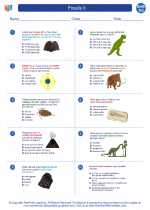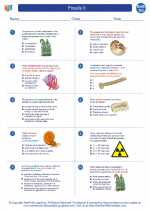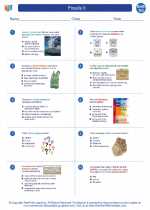Viscosity
Viscosity is a measure of a fluid's resistance to flow. It is a property that is influenced by the internal friction of the fluid, and it is an important characteristic in many fields of science and engineering. Viscosity is commonly observed in liquids, but gases can also exhibit viscosity under certain conditions.
Factors Affecting Viscosity
Several factors influence the viscosity of a fluid:
- Temperature: In general, an increase in temperature decreases viscosity as the molecules have more kinetic energy and move more easily past each other.
- Composition: The chemical makeup of a fluid plays a significant role in its viscosity. For example, long-chain molecules in polymers can lead to higher viscosity.
- Pressure: In some fluids, increasing the pressure can cause an increase in viscosity due to changes in molecular interactions.
Units of Viscosity
The SI unit of viscosity is the pascal-second (Pa·s), although the centipoise (cP) is commonly used in the industry. The centipoise is equal to 0.001 pascal-second.
Applications of Viscosity
Viscosity has wide-ranging applications, including:
- Understanding the flow of blood and other bodily fluids in the medical field.
- Designing lubricants for machinery to reduce friction.
- Controlling the flow of paints, inks, and coatings in manufacturing processes.
- Studying the movement of magma in volcanic eruptions.
Measuring Viscosity
Viscosity can be measured using various instruments such as viscometers, rheometers, and capillary tubes. The choice of method depends on the specific properties of the fluid being tested and the desired accuracy of the measurement.
Study Guide
When studying viscosity, it is important to understand the concept of internal friction and how it affects the flow of fluids. Additionally, be familiar with the units of viscosity and the factors that influence it. Practice using viscometers and interpreting viscosity data from experiments. Finally, explore the diverse applications of viscosity in different scientific and industrial contexts.
.


